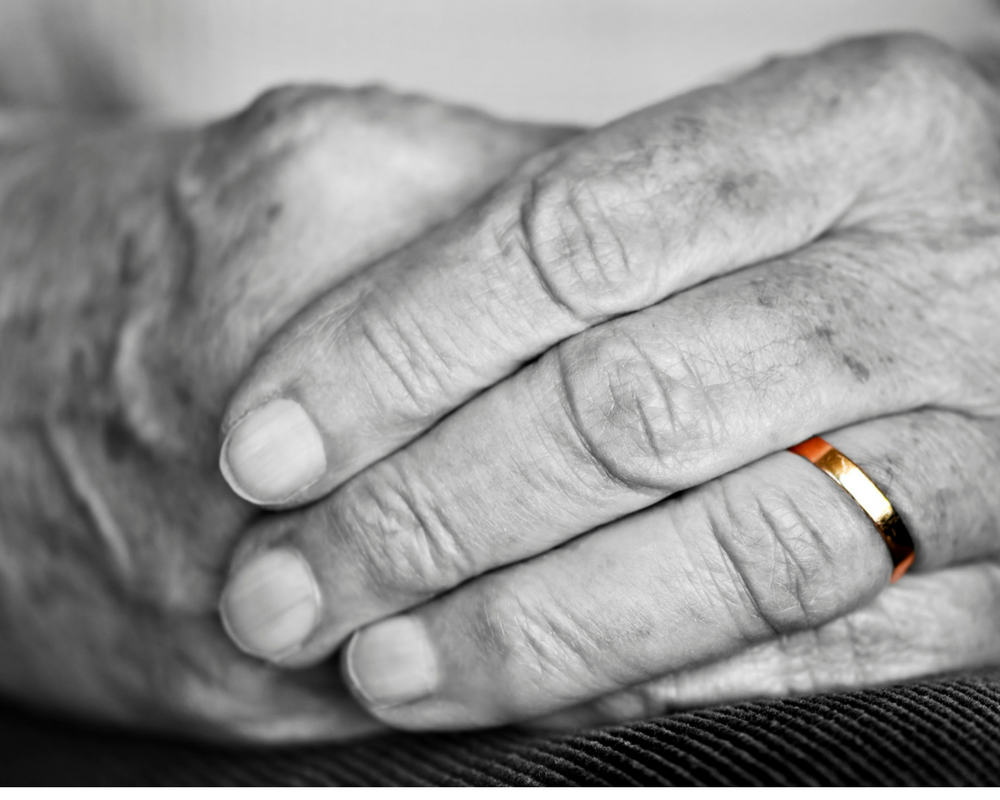
by Wrydah Laulu | Our People
“Dementia isn’t a specific disease. Instead, dementia describes a group of symptoms affecting memory, thinking and social abilities severely enough to interfere with daily functioning” ~ Mayo Clinic
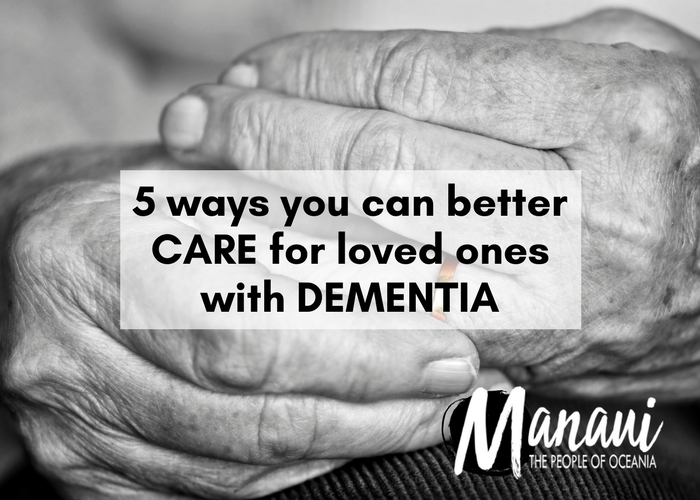
I’m not a licensed professional or certified caregiver for Dementia and/or Alzheimer patients. I am a daughter whose mother has been living with dementia for 3 years now. That gives me a little more than just common knowledge about being a caregiver. I’m here to share my experiences in caring for our elderly as well as shed more light on dementia.
Every patient (loved one) is different and each family has their own unique dynamic so mine may not be the same as yours, but what I’ve learned is that the condition remains the same and dealing with it should be along the same guidelines.
It’s been a long, trying road we’ve had to travel these past few years but I can honestly say that today, we’re better equipped to handle mom’s condition than we were three years ago. Now, in saying that, I can also say with every fiber of my being that it does NOT get easier… for you or them… but it does get better.
When you learn how to handle the fits and tantrums, it becomes – I gotta pause here to take a deep breath – less frustrating to deal with them.
Like any trade, caregiving is about having the right tools and knowing how to use them properly in a timely fashion. Your skills will become better, but their deteriorating state of mind will not ever become easier for you or them.
Here are some ways I’ve learned to cope everyday with mom’s dementia:
ACCEPT IT… the hardest part was for me to face the fact mom was no longer going to be that strong independent woman any more. She used to do everything on her own: cooking, cleaning, bathing, ironing, exercising, etc…
It wasn’t until she nearly burned down my sister’s apartment that we finally came to terms about her condition. Mom was cooking her lunch one day and after taking the teapot from the burner, she forgot to turn it off. Luckily my brother-in-law came home early that day and turned it off before anything happened.
Denying my mom had a memory problem was easy for me… easier than thinking her mind is slowly but surely fading to the point that she may not remember who I am someday. That is what hurt the most and that is what woke me up!
When your loved one is diagnosed with dementia, there isn’t much you can do about it. Short of asking God for a miracle of a newer, younger brain for your loved one, it’s pretty much a done deal.
Accepting it and dealing with it EARLY will benefit you and your loved one much more than staying in denial. Prolonging this first step hurts more than it helps… trust me! Yes it’s hard. Yes you won’t (initially) know how to deal with it. Yes it hurts.
But if they don’t have you and your acceptance, who do they have?
LEARN IT… be proactive in learning the early signs that your loved one’s condition may be worsening… it’s much better than being caught off guard, having to react nervously and/or wrongfully towards your loved one.
When our loved ones get older, it’s natural they forget things now and again, but when it’s something that may hurt them, like forgetting to take their diabetes or blood pressure medication, then we have to take over that specific task for them.
Make sure you understand how or where their dementia stemmed from. It makes a difference in how you care for them. You don’t have to learn everything about dementia but you do need to learn more about how it affects your loved one.
Mom’s dementia was medication induced… meaning, all the medications she’s been taking for the past 30 years for her diabetes, hypertension, osteoporosis, and hypercholesterolemia finally took their toll on her mind.
I took over mom’s medical care about 7 years ago, when my older sister went full force for her master’s degree. It wasn’t fair to expect my sister to juggle work full time, school full time and still be home in time for mom, to make sure she wasn’t left alone too long.
Being the only sibling without a spouse and my kids were all grown up, I was the natural choice to take over mom’s care.
Seven years ago, mom was on 9 different medications totaling 13 pills she ingested daily. Today she’s on 5 oral meds – 10 pills a day – and 1 injection med. I administer her oral meds and my youngest son does her insulin injections in the evening while I’m at work.
There are three young men, two working women and one lady with dementia in our household. We’ve all had our turns with mom’s lying, manipulation and bullheadedness … we’ve all learned how to deal with her on our own terms also. Learn something new every day, guarantee!
SHARE IT… our People Do Not Turn Away from our elderly family members when they get sick… Our People turn TO each other! At least that’s what I was taught.
Dementia, if you’ve not experienced it yourself, is very hard to deal with.
Think of your parents (mom or dad) and how they are in their prime (say 45 to 65 years old), then close your eyes… and think of them lying to you about taking a shower when you can clearly smell their body odor.
Think of them hiding food in all sorts of unacceptable places so that only they can access it later, come to find out, they forgot where they hid that food.
Try picturing your loved one taking a shower, while fully clothed, and then calling you to ask, “What am I doing wrong?”
Imagine your parent waking you up early in the morning when you JUST got home from work to tell you someone urinated all over their bed and that you need to clean it up then punish whomever did it.
Like who does that?
Mom asks me nearly every day, maybe three or four times each day, “How old am I again?” Once in a while, I’ll text one of my sisters… “How old is mom again?”
Their replies depend on their mood … “tell her she’s 21 and take a picture of her reaction” Haha!
I don’t care for mom by myself but sometimes it feels as if it’s just me against her world and I’m losing. The house we live in today is the same house my parents bought in 1977 when we migrated from Tutuila; maybe that is why I have a tendency to fall back to thinking mom can do what she needs to do and I don’t have to watch her 24/7… wrong move.
That’s when she walks to the backyard, without shoes, accidentally locks the side door so that I have to get out the shower, shampoo everywhere, open up the door for her and then – while shampoo is dripping down my face – clean her feet coz they hurt from all the prickly things on the ground outside. AND THEN when I’m finished with her feet and I get up to go finish showering, she accuses me of taking too long in the bathroom, that’s why she went outside to the backyard to urinate… LIKE SHE’S A DUDE!
Oh my goodness, forgive me… even writing this out it’s upsetting me.
You see now the therapeutic aspects of SHARING your duties, chores and caregiving tasks? No one person can do this all by themselves.
Our people are so full of pride, they will more so suffer silently (thinking that’s how it is done) than to ask for help. If you keep this stuff bottled up inside, you’ll either implode, killing yourself, or you’ll explode and maybe even kill others. Either way, it serves no one any goodness. Sharing is Caring =)
WALK AWAY FROM IT… the only way to appreciate caring for someone you love is to give yourself space from them, temporarily. Caregiving is a job… an honest to goodness WORK in PROGRESS day in, day out.
So like any job, you have working hours and time off, right? No one ever works 24/7, 365 days a year… not realistically and not without paying the consequences of overworking yourself.
Whether it’s for a few hours every day or a few days a month, allow time for just you. Even the caregiver has to be taken care of from time to time.
Schedule time with other family members to come and be the caregiver for a while, and then you go take care of yourself. Leave without feeling guilty and enjoy yourself. You’ll always come back, so don’t think of it as abandoning your loved one… no matter what anyone says.
In addition to working a full time job, I also stay with mom during the day while everyone is at work and school. I think of my time at work as my “daily getaway” – otherwise it’ll feel as if I’m always on the clock… that would drive me crazy.
I’m an ER Coordinator at the hospital, a glorified secretary in the Emergency Department. If I’m being honest, what I have at home is no worse (maybe even better) than what most people I meet on the job got going on. Some nights, work is so bad, I can’t wait to come home, kiss my kids, hug my mom and snuggle with my dog.
The first time I left mom for more than a day, I felt so guilty, but when the kids and my sister texted to tell me how mom was having fun watching football and playing with the great-grand-babies, it allowed me to enjoy myself. Time apart is healthy for both parties.
PRAY FOR LOVE… you’re never going to have enough patience so don’t bother praying for it. You’re going to raise your voice and/or yell from time to time… that’s normal… almost expected.
You do, however, need to pray for LOVE, because…
“…love is patient, love is kind, love does not envy or boast; it is not arrogant or rude. It does not insist on its own way; love does not remember wrong doings; it is not irritable or resentful; love rejoices in truth; love bears all things, hopes all things, endures all things; love never ends…”
We’re not saints, we’re humans and we will fall and fail and we will hate ourselves for something terrible we did while caring for our loved ones. So you must PRAY for love so that love helps us rise above our insecurities, our sins, our misconceptions.
There’s something enlightening about praying that overwhelms your heart and soothes your soul especially during the hard times of caring for those you love. I believe God is Love and Love has kept me from suicide, homicide, genocide.
I’ve learned that loving mom above and beyond my own limits is not meant to be a burden but a blessing. The more it hurts to love her, the more I realize the pain is meant to help me grow… help me become a better person… a bigger person that brushes off the pettiness of life.
Praying allows me peace when mom’s never ending questions drown my senses. The love I feel for mom is different now that I’m caring for her like she cared for me as a child. I’m back in the shoes of a mother soothing a frightened child with just the tone of my voice. A few key words that calm her anxieties and a look on my face she knows she can trust. I’ve become my mother and she, my child.
Mom and I understand our roles most days but when she forgets, it’s always challenging to get back on track. She doesn’t ever make it easy but that’s the fun in the challenge and the thrill in seeing how bringing her back to baseline makes your world amazing! I smile as much as I cry in awe of how much I love her more each day.
In summary, the best ways to care for someone with dementia is to accept the inevitable of their memory slowly fading, learn from your best tools how to care for them, share the responsibilities of caregiving with the rest of your family, make time to take care of yourself every so often so that you’re not overwhelmed or overworked and last but definitely not least, pray that love is always the reason you’ve chosen to care for your someone who’s been diagnosed with a condition they don’t even know they’re suffering from.
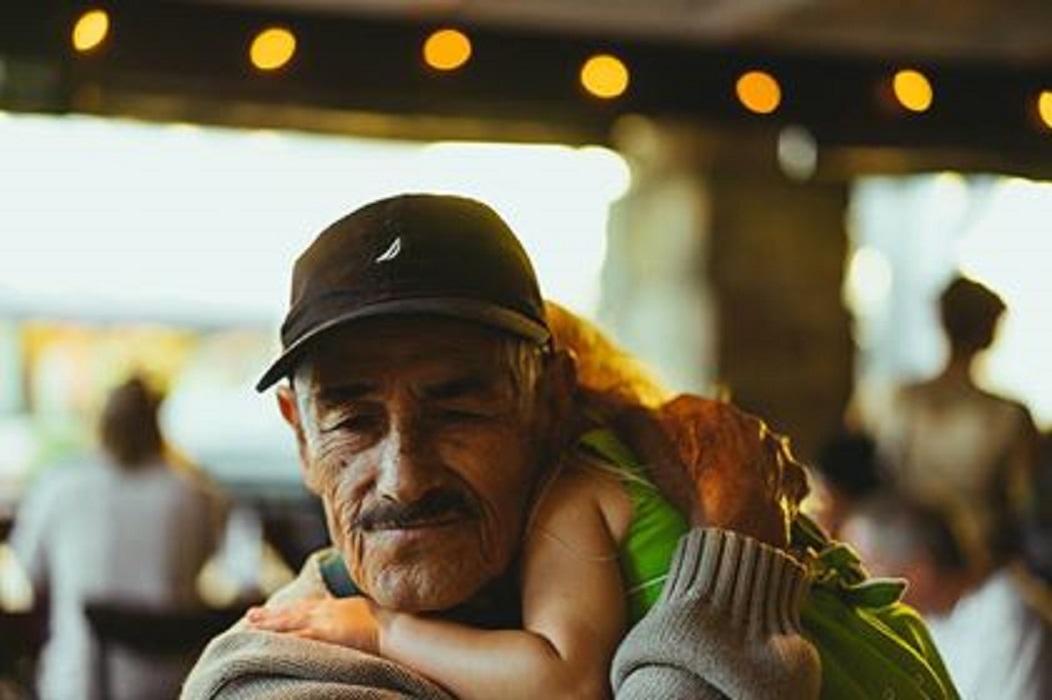
by Cazna | Essays, Our People
A little bit about me
I come from a pretty big family. I have 8 siblings however we weren’t all raised together. Only a few were raised by my parents, the others were raised by other family members. I was fortunate enough to be raised by my Nan & Pops; my mother’s parents. I’ve been with them since I was a baby, so I’ve always called them Mum & Dad and I called my parents by their names.
I was the only child with my grandparents, I remember my uncle living with us when I was little but he eventually moved out and it was a little lonely sometimes. So they would always take me out to the park, to the beach or to see family. I appreciated the time they would spend with me. But as I got older I came to really enjoy being on my own and having ‘me time’. It was time where I could just think about anything and everything. It was time to reflect. Time to unwind.
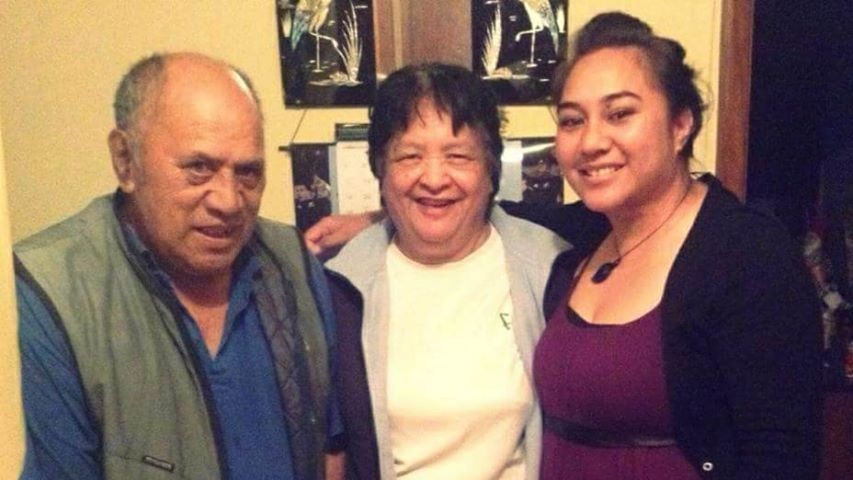
Raised the ‘old school’ way
Being the only child in the house, I was a quite spoilt haha. No, we weren’t rich nor were we dirt broke. We always seemed to have enough to get by. I only ever hung out with them and their generation. I never really hung out with family my age, mind you that’s cos all my cousins were either older or younger than me. Only had a couple of cousins around my age but then only saw them sometimes. But the places my grandparents took me, the things they taught me are things I only ever appreciated after I left home. At the time I thought I knew everything (as most kids/teenagers think) but everything makes sense now.
I’ve learnt a lot from my grandparents. The person I am today is thanks to them. Here are a few things they taught me.. I know the title says 3 but it’s kind of hard to pick just 3, so I’m going to put it into categories and list stuff under it. First topic is –
Whakapapa
Whakapapa is genealogy. Growing up I’ve always been told about how important it is to know your whakapapa. In my grandparents days genealogy was handed down verbally (so you had to have a pretty good memory) but in saying that, it was always repeated until it was embedded into their heads. I remember my Nan telling me of when she was a kid and she had to go with the kuia (elderly woman) and they would make her sit with them and would tell her all these stories and who is who going back as far as they could.
Back in the days, to keep track of whakapapa Maori would have it carved. Nowadays we are fortunate to have the internet and to be able to record our whakapapa digitally.
My personal opinion is that whakapapa doesn’t only mean knowing your genealogy, it’s also about knowing where you are from. Knowing about your land. Your family. Your ancestors and their history. Whether they were good or bad. We can’t change what our people did in the past however we have the power to make a difference for our whanau now.
Remember your whakapapa and if you don’t already know it, make it a goal to learn more about it. There are many sites which you can use to record it. I will list a few at the bottom of this article. If not ask your Nana or Koro before they pass.
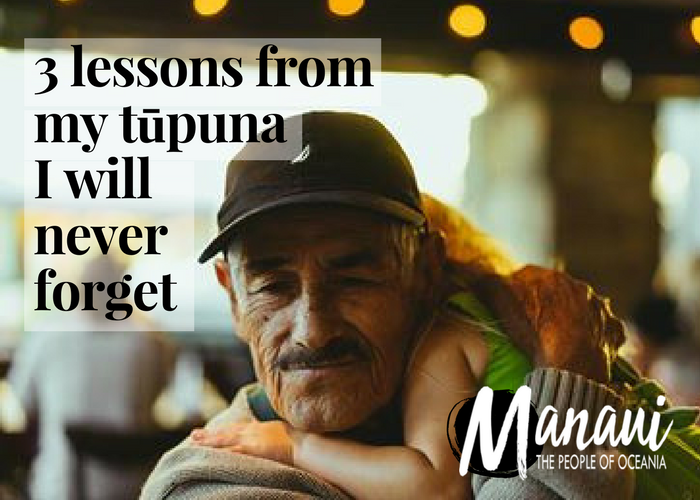
Koha
Next one is koha. Koha is a gift, it is normally something that you would give to someone in a time of need or when you feel the need to. For example traditionally when there is a tangihanga the manuhiri (visitor) would offer a koha to the family of the deceased, to help them with anything that is needed for the tangi; most of the time this covers the kai (food) which is served to those that come to visit the deceased. It is not compulsory but it is a sign of respect by doing so. When you koha, you give what you can and it is given without expecting anything in return. My grandparents always made sure they gave koha to whanau when there’s a tangi. Like I said earlier, we weren’t rich nor were we dirt broke. They would both chip in some money and give what they could. Koha doesn’t mean you just give money, food can also be a form of koha too.
I had an experience the other week. My husband, sister-in-law and I were waiting in line to get some food. I saw this old man and an old Maori lady with a walking stick nearby. I knew they wanted something, so I watched them but they took one look at the line and eventually walked away. Bear in mind that the line was long and it was a hot day. They came back not long after and was hanging around, I could see they wanted to get something but because the line was too long they weren’t keen. So I went up to them and asked if they wanted something and that I could get it for them, the old lady replied and said, ‘I just want a raw fish,’ signaling to the old man (which I assumed was her husband) to get her money. The raw fish was $4 and was in a tiny container (about a handful), wasn’t worth it to be honest. So I told them the price and how tiny it was. They were bummed and said never mind.
I went back in line and saw them sitting down, we were near the front of the line by then. I really wanted to get a raw fish for them. I asked my husband what he thought and he said ‘if there’s any left we’ll grab it’. When we got to the front we asked if there were any left and there was only 1 left. So we got it and I took it over to the kuia and gave her the raw fish. She was thankful and was about to give me some money and I told her that it was OK and that it was a koha. Her face was filled with gratitude. It felt good to do good and give back, especially to our old people.
Koha is a beautiful thing because it reminds us to be more giving which can be quite humbling. Which leads me to the next thing I was taught –
Manners
This will cover a few things. Some may not seem right under this heading but I think it fits when you really think about it. This is done in no particular order.
First one, respecting and looking after our elderly. Remember they’re older and some of them will have aching bones, so they can’t stand as long as we can. Give up your seat if need be, offer them a hand if they’re carrying shopping. Some older people still act like they’re young and think they can do everything. Truth is, some of them can’t do some of the stuff they could do when they were younger, but they’ll try. Help them out where possible, but don’t force the help if they don’t want it. Sometimes that is their motivation to keep them going and it keeps them active. Always remember your elders, but especially your grandparents; you wouldn’t be here if it wasn’t for them (for you cheeky readers. Yes I know you came from your parents but where did your parents come from? Exactly). So go see them every now and then. See if they need help with anything and sometimes it can be lonely for them. They won’t admit it but a simple visit can brighten their day.
Second – removing your shoes before entering someone’s home. As a kid I was taught to always take my shoes off when you enter into someone’s home. Removing your shoes is not only a sign of respect to the owner of the home but also to the house itself. By removing your shoes you leave any dirt and anything you carry with you outside. It’s similar to a marae. You don’t wear your shoes in a marae, it’s to respect the wharenui and the ancestors from there. I’ve been to a few places where they tell me to leave my shoes on, but I always feel uncomfortable so I remove them anyway. If you’re worried about having toe jams just make sure to wash your feet, wear clean socks or wear a pair of shoes you know doesn’t make your feet smell. Just a tip.. use baby powder 😉
Lastly, always wash your hands when you leave the urupa (cemetery). Ever wondered why there’s a bottle of water near the entrance of a cemetery or why there’s taps around? Yeah, most times it’s to clean up your loved ones but it’s also to wash your hands as you leave. Now this is a cultural thing and I understand other cultures don’t do this but this is what we do. By washing your hands you leave whatever you have with you there and also so that no spirits go with you as you leave. The water also acts as a protection for yourself as you leave the urupa.
I could go on forever talking about all the things my olds taught me, but these are just a few things they taught me which have stuck with me and I feel these are some things that could either help someone today or remind them. I hope this has helped you in some way and please don’t take some things as protocol cos these are the things that we do, but if you could respect it, that’ll be appreciated.
—
Some genealogy websites for you to check out:
http://www.familysearch.org/
http://www.myheritage.com/
http://www.ancestry.com.au/
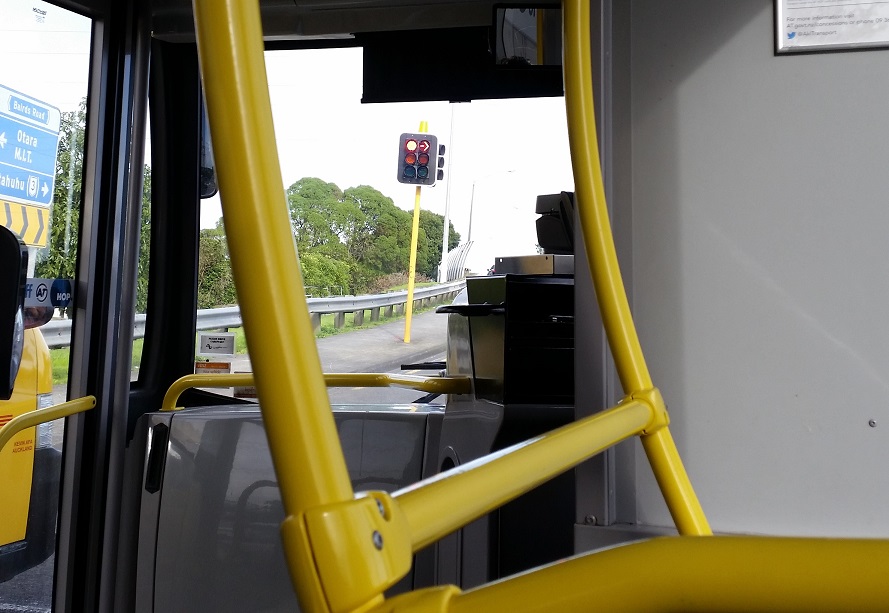
by Lils | Essays, Our People
I’m a firm supporter of public transport – yay for saving the ozone layer and gas money! lol – and yesterday, when I got on the bus for my hour-and-a-bit-long commute home, I spotted a little, elderly couple huddled together in their seats, half way down the aisle. As I got closer, I realized with some surprise that I knew them.
They are good family friends we’d met over 20 years ago in church. Although we don’t see them often any more, we’ve stayed connected through their grown children and the occasional combined church activities. I love meeting up with them because even though their memory is going, and they move slower now and don’t speak as loud as they used to, they are always so warm and loving, and remind me of a time in my life – oh so long ago – of innocence and youth.
I stopped to talk with them – in my broken Samoan, thank goodness they know a little English, too – and learned that they had decided to use the free pass they get as senior citizens to go for a bus ride around the city. Really? I asked. And what part of Auckland had they travelled through so far today?
With beaming grins and animated gestures they mapped out their bus route as if it were a great adventure around the world. I couldn’t help but smile at their enthusiasm for something that, for me, was simply a way to get from home to work and back everyday. After a little more chit chat, I excused myself to sit in my usual spot at the very back of the bus.
Over the next hour or so, between checking my emails, napping, flicking through music and texting, I’d sneak glances at the elderly couple and recalled some of the things I knew about them.
Their youngest of 7 children was well into his thirties now, so that put them in the age range of late 70s early 80s, with something like 15 to 20 grandchildren. For as long as I’d known them, they’d lived in an area of South Auckland known for its poverty and crime, but their house was always spotless. Stepping onto their property was like walking into the garden of Eden with its manicured lawns and beautifully kept plants.
Not to say that their life was easy. I know they had their fair share of troubles over the years. Like a lot of us migrants to NZ, they struggled with language and cultural issues. Money was tight so they both worked long hours of menial labour. Their children weren’t always angels, especially through their teen years (hey, it’s a tough neighbourhood). I’m sure they had ups and downs in their marriage too – I remember the man being quite the character for a while – and they also had a few health problems between them to manage.
Sitting there on the bus though, they looked so… serene. I don’t think they said a single word to each other my entire ride home, but I noticed them gazing out the windows as if they were seeing this old town for the very first time. In a manner typical of older Samoan couples, they didn’t hold hands or lean on each other in unnecessary displays of affection, but if you paid close attention, you could still see the solidarity in their subtle body language: The Mrs looked tiny and snug between the window and her Mister, who had an arm propped against the seat in front of him, as if protecting their little cubicle from movement down the bus aisle.
This pair had been together for 50 or more years now, I calculated. I can only imagine what else they were able to communicate to each other in their own private, silent language, developed over so much time.
Geek as I am, hard as I try to be, in a moment of pure humanity, I couldn’t help but hope for the privilege of someday knowing that kind of love.
We arrived at my stop, and I paused to say goodbye to my old friends. They broke into bright, wrinkled smiles again, as if I’d woken them up from a sweet, distant dream. They told me to take care of myself, to send my love to my family, and that we’ll see each other again soon… and as they waved their farewells, I thought I saw their eyes well up a little bit.
I guess seeing me – someone they’d known since she was a child – all grown up now was yet another reminder of just how much they had experienced so far in this life… together.

This article first appeared a few days ago in my One Samoana
Village blog.
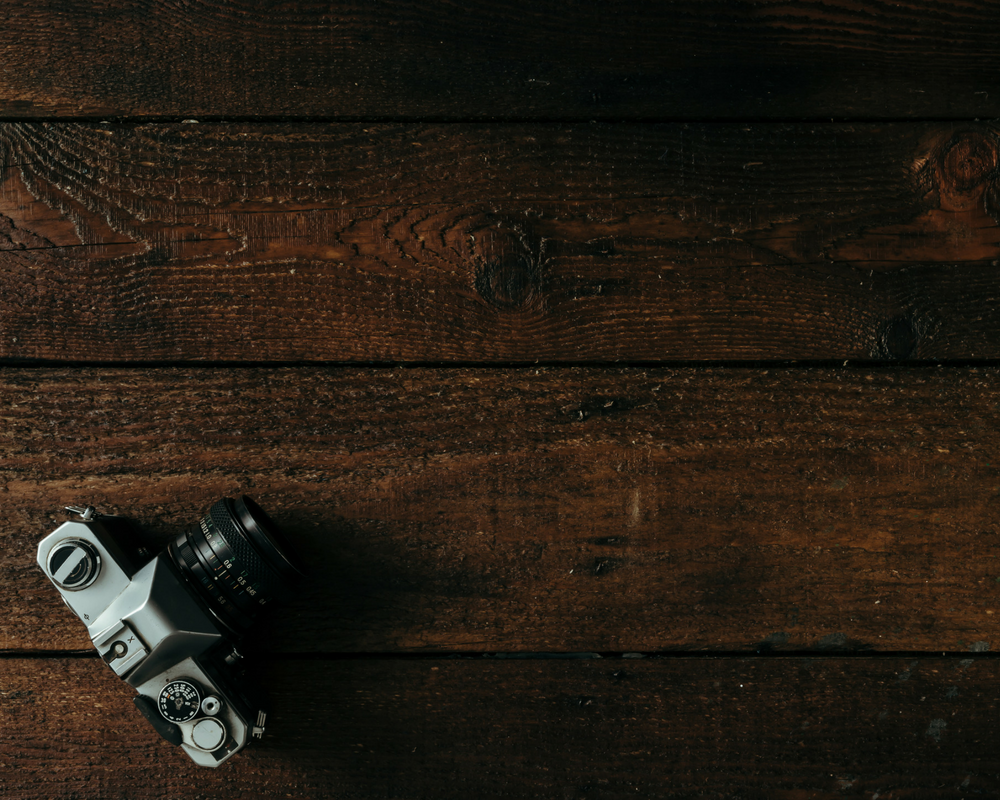
by Lils | Essays, Our People
I lost my camera.
It happened maybe two years ago, around the time my house was broken into… twice, even, in less than 3 months (bloody South Auckland street kids).
The thing is, I didn’t even notice it was gone until a few weeks later. Or maybe I did notice, but that memory was filed away somewhere in my subconscious, along with other tragedies in my life that I refuse to willingly acknowledge.
Even today I’m clinging to the hope that my camera will show up again somewhere – at the back of the hot water cupboard? Buried under the old monitors, broken desks and moldy newspapers piled high in the garage? Or maybe a cousin will turn up to my house one day and apologize for not getting my camera back to me after borrowing it a year and a half ago – but here it is, thanks, in perfect working order.
I can’t even remember the make of it. Nikon I think. Or Cannon. All I know is that it had a manual /auto adjust zoom lens, the flash still worked, never mind that its cover looked burnt, and it required film that cost around $13 each, or less than $30 for a triple pack.
Over the years that I’d had this camera, I must have spent thousands of dollars developing film. Thankfully, only a small portion of that came out of my own pocket. People actually paid me to take photos – mostly friends and friends of friends who were getting married and didn’t want to fork out ridiculous amounts for a real photographer.
I was the girl with the camera at everybody’s wedding in those days, and sometimes it was magic – perfect timing, great shots, lots of frame-worthy images. Other times I’d have to walk away from a job sighing, ah well. You get what you pay for… because while I could take a pretty picture, my photography was hardly ‘professional’. (more…)



















Recent Comments